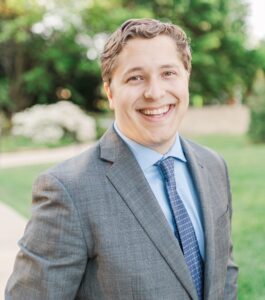
The Substitute Teacher: A Teacher’s Identity Grounded in Loss – Part 1
Abstract:
This is the first part of a collection of poems showcasing the personal exploration of a teaching identity grounded in grief experiences, one of the aspects of identity educators carry into the classroom. The use of poetry permits an open theological exploration in which the author examines aspects of his life through the lens of religious allusions and imagery including the creation narratives, Cain and Abel, and Hannah. Specifically, the author engages the experience of growing up in a family impacted by the death of his brother who died prior to the author’s own birth. The experience of being a “substitute” and a “teacher” is represented within the poetry. The series begins with childhood encounters with loss and moves through life and teaching experiences marked by grief.
In the Beginning: The First Account of Creation
Orientation:
As the students and their families file into a multipurpose room
somehow simultaneously drab and new,
I allow my mind to wonder about the myths these students carry about their families’
creation.
Without meaning to,
my mind falls backward,
remembering
how in the beginning,
when God created my family,
I must’ve been somewhere in the formless void
as darkness began to cover the face of my parents,
while a wind of grief swept over the face of my community.
I recall the darkness hiding them on his birthday, the anniversary of his death, and the holidays.
I wish there weren't so many holidays.
Then the great Teacher said, “Let there be Zachary,”
and there I was.
And I saw that I was supposed to be good,
and so I separated myself from the darkness…
or at least, I tried.
My teachers loved how hard I tried.
I called the light ours,
and I called the darkness mine.
And there was anxiety,
and there was laughter:
my childhood.
I come to my senses.
Anxiety and laughter linger
as I pick up the microphone
and welcome my new students
to the end of their childhoods.
“Today is the beginning…”
Accidental Cain
Reading my course evaluations,
I realize I may be too sensitive.
“This reading was impossible.”
one student wrote.
“Literally impossible.”
I begin my investigation
and piece together the evidence
for why my textual selections
missed the mark.
But then I get lost in another long-winded lecture to an audience of one,
thinking about how we are here, together, right now, on this floating rock, in outer space,
something that’s always seemed impossible to me.
Literally impossible.
Why am I here?
It’s impossible that I killed my brother.
I was born two years after he died.
Literally impossible.
Yet until the age of twelve I asked myself the questions the Lord asked Cain,
“Where is your brother?”
“What have you done?”
I listened, and I heard my brother’s blood crying out from the ground.
It was sad music that I could barely hear, but it left a ringing in my ear.
So I became a wonder-er and a wanderer,
and I made my way to the land of Nod, east of Eden,
But even after I turned twelve, and then seventeen, and then thirty
the ringing never went away.
I was too scared to ask to watch the home movies
so I could know what he sounded like.
I wondered what his embrace would feel like–
would he have been the kind of big brother that hugged his baby brother,
or would he have withheld his affection to toughen me up?
Maybe I wouldn’t have been so sensitive, then.
I pictured the car crashing
again and again.
Did he die upon impact?
Did he know he was dying?
Was there part of him that ever wanted to die?
Mom wanted to die, so maybe that’s why she loves him so much.
Maybe they had that in common.
I don’t think we’d have much in common at all.
An unnecessary worry, but such worries are my currency.
Why wouldn’t God just accept Cain’s sacrifice?
Maybe Cain was too sensitive, too.
Maybe I’ll find a video for next semester.
Sonny
In moments of solitude,
I stare intently at the strange wooden case
of what’s left of your life,
a child playing secret agent,
but feeling like a detective who is also the
lead suspect.
I examine the trophies and books
and what I think is your wallet,
with a note your teacher confiscated.
You never were a fan of teachers, Dad said.
I’m too afraid to open the case.
I’m as trapped as your belongings:
a carefully curated catastrophe.
Now you show up in dreams and nightmares,
and people chase you
But you shush them,
or you turn to mist.
And I sit in a strange kind of envy, an outsider among those who miss
Sonny.
Leave a Reply